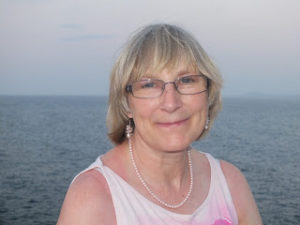Forgiveness Fridays: When nations repent by Sheila Johnson
What happens when nations repent? How does God honor the prayers of his people seeking forgiveness for those atrocities committed by governments? I don’t claim to know the answer to that mystery, but I also don’t want to discount how he might hear our cries. What do you think?
Although I was born in the UK, my mother was a New Zealander, so I feel a certain attachment to the land and my many relations. To date I have visited there three times. Therefore, at a recent Lydia prayer conference, my ears pricked up when the speaker, a David Tidy of Prayer Warriors International, began talking about his recent visits to New Zealand and the need for the British to repent over their actions towards the indigenous people, the Maoris.
When Captain James Cook arrived in the islands in 1770, a spirit of division, colonialism, legalism and land-grabbing entered the islands. Indeed, the New Zealand Company, which was in charge of encouraging the British settlers to emigrate, took land, often forcibly from the indigenous Maori population. This resulted in bitter land wars, violence and death, with Freemasonary being a very strong influence behind the British Colonialism.
Early on in their three years of visits between 2012–15, David Tidy and the British team visited Waitangi where the treaty establishing British rule was signed in 1840. Here they instigated a new spiritual declaration, which was signed by local Maori believers on the backs of both the British and Maoris at the same spot. Repentance was declared for bringing in immorality, alcohol, broken promises and war, and forgiveness was declared. The vision of a ‘land octopus’ was seen by a number of intercessors, its head based in Westminster and its tentacles spreading out of the Bay of Islands in the north of the north island right over the whole of the two New Zealand islands. This repentance went into the very parliament building of the Beehive in Wellington where a meeting took place in the Maori room of the Beehive and the team knelt before two Maori MPs.

The Beehive

Detail of wall carvings from Maori Committee meeting room
Then the octopus of Landlordism and Pride which the Maoris had seen sitting over the parliament building and thrashing its tentacles was prayed against as the team confessed the iniquity of colonialism and Westminster legalism over the Maori people. The team prayed for the severing of the head of this destructive image. In its place, an image of a jug pouring milk, representing a healing balm, was seen as a vision poured over the entire map of New Zealand.
Tears flowed as the rawness and genuineness of the repentance was accepted by the Maori people and a new spirit was established allowing liberty and creating an environment where the Holy Spirit would be free to let people make their own choices whether or not to follow Jesus.
This has been followed up by the New Zealand government who have issued a public apology for their unlawful actions allowed during the nineteenth-century land wars, followed by a final land settlement agreement between the various tribes and the Crown.

Tarureka Estate (now a popular wedding venue)
All this national history and repentance means a lot to me, not just because of my family background but also because I am currently writing a book based on my Scottish ancestors who went out to New Zealand in the nineteenth century. Interestingly enough, these were my Father’s ancestors and not my Mother’s. Yes, he too had connections with New Zealand, although in the farming community. My book is about a James Douglas who goes out to New Zealand on the encouragement of the New Zealand Company because, like many, he is told of all this cheap available land for farming and so he eventually sets up a dairy farm there. Now, I have discovered that it wasn’t cheap, available land at all but stolen land, land often flowing with bitterness and blood. I’m not sure that I can use all this information in my book, Tarureka, but it certainly puts a different complexion on the story and helps the twenty-first-century reader to see the character’s experiences in the new land in a slightly different light.
 Sheila Johnson, a UK-based writer, has over ten years’ experience as a successful freelance journalist. She writes fiction under the name of Sheila Donald, and in 2016, self-published a Christian romance based around an Alpha Course, called Alpha Male. Tarureka is her second book fictionalising the story of her Scottish ancestors’ life in New Zealand in the nineteenth century.
Sheila Johnson, a UK-based writer, has over ten years’ experience as a successful freelance journalist. She writes fiction under the name of Sheila Donald, and in 2016, self-published a Christian romance based around an Alpha Course, called Alpha Male. Tarureka is her second book fictionalising the story of her Scottish ancestors’ life in New Zealand in the nineteenth century.
When not writing, Sheila enjoys singing, history, films, the theatre, cooking and Formula One racing.








 Hello!
Hello! 